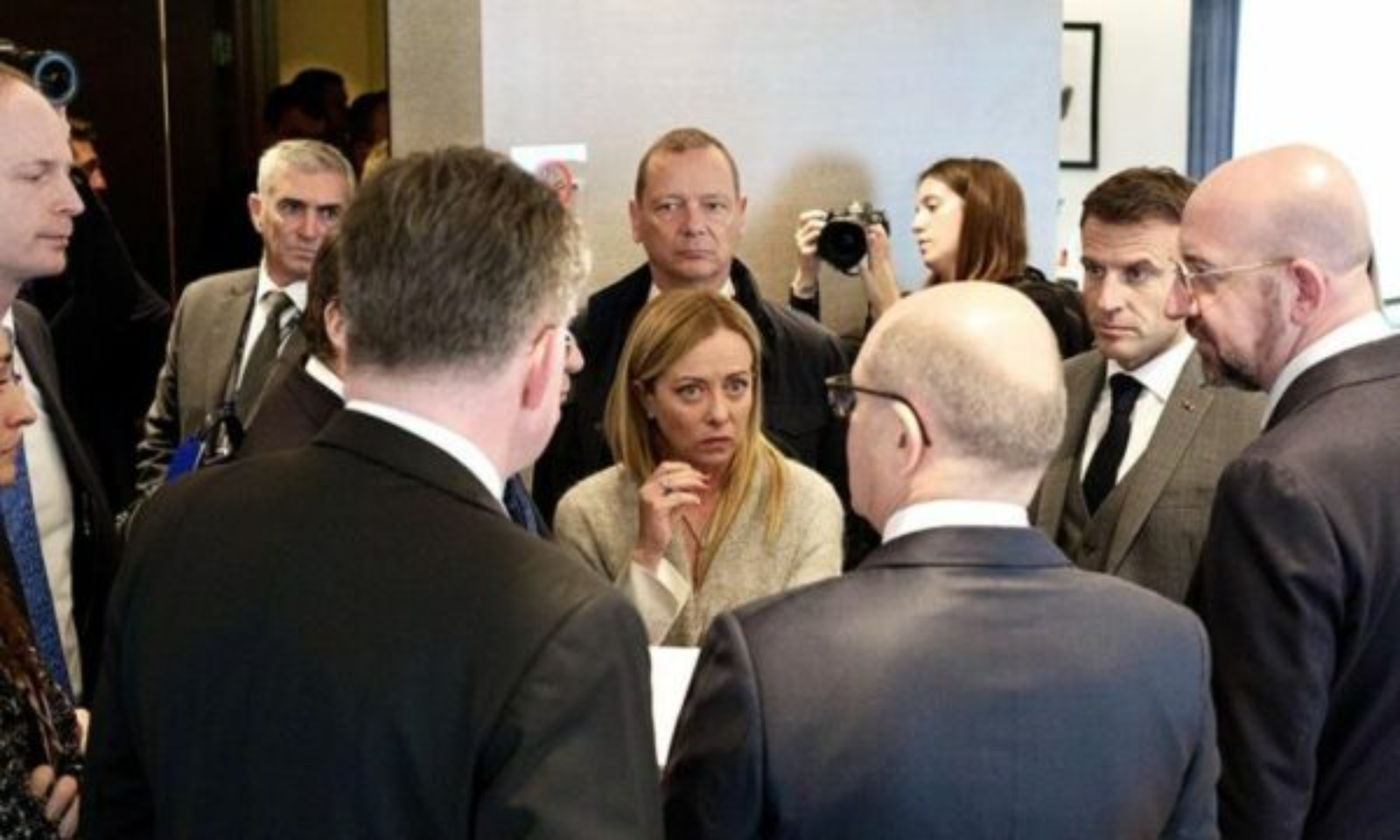For those familiar with the developments in the Balkans, the guarantees requested by the President of Kosovo, Vjosa Osmani, in exchange for the establishment of the Association of municipalities with a Serbian majority, are fair and necessary.
But equally, according to them, are the demands of the international community for Kosovo to establish this Association.
“The best way for Kosovo to get the guarantees it deserves is to offer the Kosovo Serbs the guarantees they deserve as citizens of Kosovo,” says Edward P. Joseph, lecturer at Johns Hopkins University in the USA.
Osmani, in an interview given to the Voice of America on July 10, asked international partners for guarantees for security and for Kosovo’s membership in international organizations, in exchange for the establishment of the Association.
Radio Free Europe asked the Government of Kosovo if it stands behind these demands, but its officials said that they will not declare on this topic.
In an interview given to REL on March 19, Prime Minister Albin Kurti said that he is “in line” with President Osmani regarding the issue of the Association.
Why the Association?
The association of Serb-majority municipalities would provide Kosovo Serbs with more rights, namely a level of self-management in education, health care, economy and other areas.
For its establishment, Kosovo and Serbia reached an agreement in 2013, within the dialogue for the normalization of relations mediated by the European Union.
The agreement was also approved in the Assembly of Kosovo, but the Constitutional Court of Kosovo later found that it was unconstitutional, as it did not include other ethnic groups.
Despite the constant calls of the international community, successive governments of Kosovo hesitated to establish the Association, fearing that such a single-ethnic organization would affect the functioning of the state.
Would the international community offer guarantees to Kosovo?
In the European Union, they do not answer this question, but say that Kosovo, for a long time, has a legal obligation to establish the Association.
“It is urgently necessary to fulfill this obligation”, EU spokesman Peter Stano says for REL.
At the end of last year, the EU drew up a draft statute for the establishment of the Association, which was submitted to Kosovo and Serbia.
Although it initially appeared to be accepted by both parties, it was not taken forward.
REL also asked the US Department of State if it would offer Kosovo the guarantees requested by President Osmani, but did not receive an answer.
In the past, senior US officials assured that their support goes to an association in accordance with the Constitution and laws of Kosovo.
Are Osman’s demands justifiable?
Leon Hartwell, senior fellow at LSE IDEAS – London School of Economics, says that Osmani is rightly skeptical that the establishment of the Association would bring tangible benefits to Kosovo.
According to him, her demands should be seen in the context of Serbia’s ongoing efforts to destabilize Kosovo.
Therefore, Osmani asks for guarantees, “to mitigate the possible negative consequences” and “to ensure that the interests of Kosovo are protected”, says Hartwell for Radio Free Europe.
With the 2023 agreement for the normalization of relations, known as the Basic Agreement, Kosovo agreed to provide the Serbian community with a level of self-management, while Serbia agreed not to hinder Kosovo’s membership in international organizations, among others.
Another agreement, which included this obligation, was reached by Kosovo and Serbia in February 2023, but it was also not implemented.
However, Serbia lobbied against Kosovo’s membership in the Council of Europe; drew up an official letter through which he pledged not to implement some parts of the agreement and was accused of an armed attack in Banjska, Kosovo.
“Reading between the lines of Osmani’s statement, it is evident that she is seeking either a real, legally binding agreement that obliges Serbia to fulfill its commitments, or – in the absence of such an agreement – substantial guarantees international,” says Hartwell.
The 2023 agreement and its implementing annex were not signed by Kosovo and Serbia, due to the latter’s rejection, and Hartwell says that, from the perspective of international law, these documents do not constitute any obligation, even though the EU insist on the opposite.
Why are guarantees “necessary” for Kosovo?
For three reasons, says Edward P. Joseph, lecturer at Johns Hopkins University in the US.
First, the counterparty of the Basic Agreement, Serbia, has not behaved in good faith, since the moment when the two countries “agreed” on the implementation annex, he says.
Secondly, the obligations of each party “are not parallel”. “It is Kosovo that is asked to take the affirmative step for the formation of the Association… There is no parallel step, for example, of an association within Serbia for Albania”, says Joseph for REL.
Instead, he adds, Serbia is obliged not to oppose Kosovo’s membership in international organizations. But the number one priority of Serbia’s foreign policy is precisely the blocking of Kosovo’s membership in international organizations – with words and deeds, he says.
“This is why it is essential that the EU and the US have a plan – not just a hope or an effort – to advance Kosovo’s membership in NATO first and foremost, regardless of what Serbia does,” Joseph believes.
And, the third reason why guarantees are essential, according to him, is the fact that the EU has “shown little will” to accept its responsibilities under the Basic Agreement and its implementing Annex.
“By agreement, the ‘Joint Monitoring Committee’… ‘chaired by the EU’… should be established to monitor its implementation. But the EU shied away from this responsibility to arbitrate,” says Joseph.
What would the guarantees look like?
Joseph and Hartwell list several options.
For starters, says Joseph, major European capitals, such as Berlin and Paris, can assure Pristina that if it submits the EU’s draft statute for the Association for review by the Constitutional Court, it will have the votes for membership in the Council of Europe. Europe.
At the same time, the EU can devise a method to approve Kosovo’s request for membership in this bloc, he says.
For Hartwell, the optimal option would be Kosovo’s admission to NATO and, to a certain extent, to the EU. But, since it is currently unfeasible, due to the fact that in both organizations there are countries that do not recognize Kosovo’s independence, there is also a temporary option, according to him.
“Before joining NATO or the EU, Kosovo may seek bilateral defense agreements with several key countries, such as the USA, Great Britain, Turkey and selected EU states. These agreements could provide formalized security guarantees similar to those of non-NATO allies such as Japan and South Korea,” says Hartwell.
According to him, such agreements, which include joint military exercises, would then serve as “an obstacle to possible aggression from Serbia”.
Would guarantees be the way out?
Hartwell says that, given that the dialogue for the normalization of relations between Kosovo and Serbia is deadlocked, if not dead, the most effective way to end the conflict is precisely these agreements, or Kosovo’s membership in NATO and the EU .
“The Kosovo Serbs would also benefit a lot from this approach, as it would offer them stability and security,” he says.
For Joseph, Osmani is within her rights to demand guarantees, but Washington and Brussels are also within their rights to demand the submission of the draft statute for the Association to the Constitutional Court, as well as the full respect of the rights of the Kosovo Serbs. .
Therefore, the best way for Kosovo to get the guarantees it deserves, “is to offer the Kosovo Serbs the guarantees they deserve as citizens of Kosovo”, says the lecturer at Johns Hopkins University.
For the dialogue…
In negotiations for the normalization of relations as early as 2011, Kosovo and Serbia reached dozens of agreements on paper, but few of them were implemented on the ground.
The last high-level meeting – between the Prime Minister of Kosovo, Albin Kurti, and the President of Serbia, Aleksandar Vučić – was held in September last year.
In the last three years, they met eight times, but in none of the meetings was any agreement signed and in each of them they blamed each other./Rel







